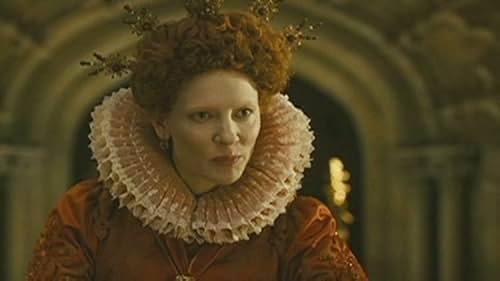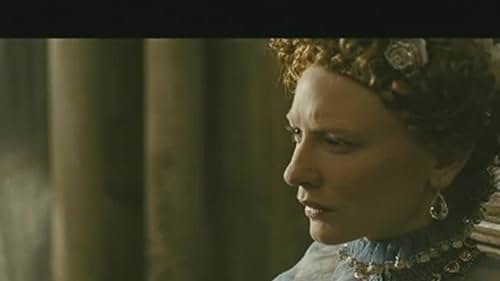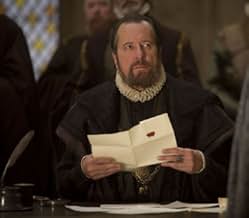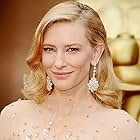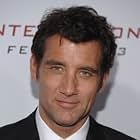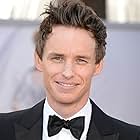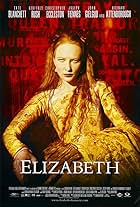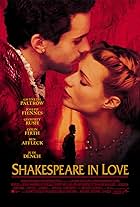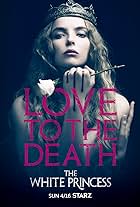A mature Queen Elizabeth endures multiple crises late in her reign including court intrigues, an assassination plot, the Spanish Armada, and romantic disappointments.A mature Queen Elizabeth endures multiple crises late in her reign including court intrigues, an assassination plot, the Spanish Armada, and romantic disappointments.A mature Queen Elizabeth endures multiple crises late in her reign including court intrigues, an assassination plot, the Spanish Armada, and romantic disappointments.
- Director
- Writers
- Stars
- Won 1 Oscar
- 8 wins & 33 nominations total
- King Philip ll of Spain
- (as Jordi Molla)
- Director
- Writers
- All cast & crew
- Production, box office & more at IMDbPro
Featured reviews
While it may be true the film is not historically correct, most of us do not go to the movies for a history lesson. We go to be entertained. On that basis, this film is a winner. It has romance, intrigue and betrayal. It is basically a melodrama.
The photography is great, although sometimes the director gets carried away with the camera movements. The orchestral score in fine, although it is overwhelming at times. The acting is absolutely first rate.
I thought that "Elizebeth: The Golden Age" was more entertaining than any of the "Pirates of the Carribian" movies. If you want an entertaining movie that is geared more towards adults than children, then you should check the movie out.
The focus is narrower in time, beginning in 1585 and climaxing with the defeat of the Spanish Armada three years later in action scenes absent from the first film. The main problem is the script from Michael Hirst & William Nicholson. The narrative is too slow and too confused and some of the lines are somewhat banal, while the attempt to create a romantic storyline between the 'virgin' queen and the adventurer Walter Raleigh (an able Clive Owen) is too contrived and unlikely.
The set-up is rich with possibilities only partially realized on screen. Protestant England is on its knees, as Roman Catholic Spain has become Europe's most powerful country. Now in her early fifties, Elizabeth is vulnerable since Phillip II of Spain is intent on conquering England and especially because she has not married and produced an heir. Next in line is her cousin, Mary, Queen of Scots, a devout Roman Catholic imprisoned in a castle in Northamptonshire. Elizabeth has proved to be a tolerant ruler as she allows her country's Roman Catholics to maintain their religious beliefs, even though they see Mary as the only rightful Queen. In the meantime, Sir Walter Raleigh has just returned from the New World and stimulated Elizabeth's passion for adventure and her long-dormant desire for romance. Complicating matters is Elizabeth's devoted lady-in-waiting, Bess, a comely beauty who attracts Raleigh's attention. Just as this standard triangle is established, there is a threat on Elizabeth's life known historically as the Babington Plot. Mary is beheaded for her connection to the plot, which gives Philip free rein to gain the Pope's approval to attack England. Elizabeth inspires her troops to face off with the much larger Spanish Armada, and the rest, as they say, is history.
It's no surprise that Cate Blanchett commands the screen in the title role and does her best to fill in the blanks left by the routine script. She manages to imbue the Queen with a hidden vulnerability at which comparatively imperious predecessors like Bette Davis and Glenda Jackson merely hint. The one drawback is that she is too young for the role, a point emphasized by the periodic and somewhat conceited use of flashbacks from the previous film in which her appearance has not changed significantly despite the make-up. Geoffrey Rush returns from the first film as Elizabeth's adviser, Sir Francis Walsingham, but he has less to do this time. As Raleigh, Clive Owen has no problem playing a dashing figure, but he seems more like a romantic's fabrication of what a bodice-ripping swashbuckler should be. Speaking with a strange burr, Samantha Morton has precious few scenes as the fanatical but forgiving Mary, and her pouty face and petulant manner seem at odds with previous characterizations. As Philip, Jordi Mollà is forced to play the king as a religious zealot, while Abbie Cornish's Bess strikes me as far too contemporary in manner to be credible as a lady-in-waiting, especially with the ongoing hints of lesbianism and a soft porn-like lovemaking scene with Raleigh.
Guy Dyas' production design, Alexandra Byrne's costumes and Remi Adefarasin's cinematography are all impressive in their splendor and meticulous detail, though I found the music by Craig Armstrong and A.R. Rahman far too intrusive. There are several extras with the 2008 DVD release starting with Kapur's commentary track, often insightful but excessively verbose. An eleven-minute making-of featurette is included, of course, but it is pretty standard with plenty of now-and-then comparisons with the 1998 film. Three other shorts are included one on Dyas' intensive work on the production design, one on the recreation of the climactic battle with a mix of ship replicas and CGI, and one on the actual locations used for the filming. There are nine minutes of deleted and extended scenes including one that too-realistically shows Mary's decapitated head. None of these extras helps make the experience of watching this film any more involving.
There's a lot of good stuff in this film, but there're some pitfalls as well. On the plus side the sets and costumes are magnificent. A great deal of care and love when into the art direction to bring us an Elizabethan renaissance film, replete with court intrigue and foreign emissaries who threaten invasion because of high seas thievery courtesy Clive Owen's character. Visually this film is very lush and impressive, though somewhat confining at times. We're never really shown Elizabethan England, just the "important parts" that are salient to the story.
And, as Elizabeth's favorite playwright would say, "there's the rub". And by this I mean that the film is a bit all over the place. It's a costume drama, it's a romance, it's a period political thriller, it's a military epic, and so forth. It even skids the fantasy genre with some of the fancy camera work that was done. But, all in all, the film's primary thrust is to try and grab hold of all of these genres, and tie them together into some kind of cohesive and suscint manner.
The romance, the intrigue, the sisterly emotions, the rivalry between matriarchs, and the "battle scene" hearken back to a time when Hollywood used to crank out these kinds of movies with some regularity. But the context between those films and "Elizabeth: The Golden Age" are nearly day and night, even though both are striving for a high water mark in historical drama.
I thought "Elizabeth: The Golden Age" was technically a competent production. In fact, given the difficulties there must have been getting some of the shots I'll give it high marks as a pure production effort. But as a film I simply found it to be a touch too ambitious, and over-indulgent near the end.
That's not to say that I didn't enjoy a lot of the film, because I did. Blanchet's Elizabeth is a strong woman; full of zest, energy, and a bit of anger, which she levels at her adversaries. But she's also a chief of state, internationalist, and, of course, the queen of England. She doesn't wear several hats. She wears a crown. But even so, and this is where the film falls a bit short, she doesn't demonstrate a cohesive ability to command all. She shows she's in charge, but doesn't act like she's in charge until near the end.
The film was geared and aimed at a female audience (a thing which I had not expected), and so a lot of the energy is directed at that audience, with the appropriate emotional flourishes. Combined with some so-so CGI for the action sequences (and a horse with a perm which almost had me laughing), one wonders where the film was headed. Elizabeth didn't save England with her emotional power alone, and yet this is the gist of the film. It's a real let down in this regard.
The film is a mixed blessing. There's a lot of decent acting, and some exceptional performances by the leads. Married to a rather extravagant art director to bring to life palace, throne room, chambers, and galleons at sea, and one can easily see that this was meant to be a top notch production. But some of the logical loopholes where Blanchet's character is concerned conspire with some of the story loopholes to hold back a better film.
As a guy all I can say is that it's not something I'd watch again, and I'm not too sure I'd recommend it to any female audiences. But, if you don't mind your period dramas skirting the edge of high kamp, then splurge on a ticket, and see what "Elizabeth: The Golden Age" is all about.
Blanchett, of course, is terrific, and doesn't seem to mind that the screenwriters have turned her signature character into a woman with split personalities: a raving love-scorned woman in private who constantly crumbles under pressure, and a powerful monarch who commands the wind and becomes a divinity to her people in public. Elizabeth has no character arc here like she did in the original film that saw her mature from frightened princess to calculating queen. The sequel suffers from this lack of development for its titular historical icon, but Blanchett rules the madhouse with an iron fist, chewing the scenery when necessary for dramatic effect and maximum entertainment value.
The sequel also suffers from too much focus on a silly love triangle involving Elizabeth, Sir Walter Raleigh (an uninspired Clive Owen), and one of her ladies in waiting (a ravishingly gorgeous but ultimately lifeless Abbie Cornish). The rest of the film covers events that were already treated in a more respectful and quietly powerful manner in HBO's miniseries starring Helen Mirren. These include Elizabeth's divisive relationship with Mary Stuart (a blistering Samantha Morton doing an entertaining bit of over-acting), and the defeat of the Spanish Armada, whose sinking is done up in a rock opera style that serves as a guilty pleasure to watch.
Meanwhile, director Kapur, who never saw an overhead shot, candlelit scene, or 360 degree crane movement he didn't love, uses his bigger budget to ridiculously grand effect creating immaculate set designs populated with over the top costuming and epic pageantry. "Elizabeth: The Golden Age" is completely unnecessary, but despite some of its stunning ineptitude, it turns out not to be a colossal waste of time and will entertain those who will allow it to bludgeon them. Where the first film was a smart period piece inspired by "The Godfather", the silly sequel is a dumb art-house film inspired by obnoxious action flicks. Blanchett, who hopefully will become more selective in her roles as she ages, oddly seems at home in both. I'm not sure if that's the mark of a great actress or a desperate movie star.
Did you know
- TriviaWhen Elizabeth arrives at St. Paul's Cathedral, construction is going on. In real life, St. Paul's actually needed repair work. Director Shekhar Kapur decided to improvise and gave the workers costumes and period tools to cut real stone that was being installed in the cathedral. The workers in the scene are real-life stonemasons and construction workers.
- GoofsThe real Babington Plot to assassinate Queen Elizabeth at the altar was thwarted in the planning stages.
- Quotes
Queen Elizabeth I: Go back to your rathole! Tell Philip I fear neither him, nor his priests, nor his armies. Tell him if he wants to shake his little fist at us, we're ready to give him such a bite he'll wish he'd kept his hands in his pockets!
Don Guerau De Spes: You see a leaf fall, and you think you know which way the wind blows. Well, there is a wind coming, Madame, that will sweep away your pride.
[turns to leave with his ministers]
Queen Elizabeth I: I, too, can command the wind, sir! I have a hurricane in me that will strip Spain bare if you dare to try me!
- ConnectionsEdited from Ryan's Daughter (1970)
- SoundtracksVolta a 4
Written by John Dowland
Performed by The Consort of Musicke
Conducted by Anthony Rooley
Courtesy of The Decca Record Company Ltd
Under licence from Universal Music Operations Ltd
Details
- Release date
- Countries of origin
- Languages
- Also known as
- Elizabeth - L'âge d'or
- Filming locations
- Eilean Donan Castle, Dornie, Highland, Scotland, UK(on location)
- Production companies
- See more company credits at IMDbPro
Box office
- Budget
- $55,000,000 (estimated)
- Gross US & Canada
- $16,383,509
- Opening weekend US & Canada
- $6,153,075
- Oct 14, 2007
- Gross worldwide
- $75,782,758
- Runtime1 hour 54 minutes
- Color
- Sound mix
- Aspect ratio
- 1.85 : 1
Contribute to this page





